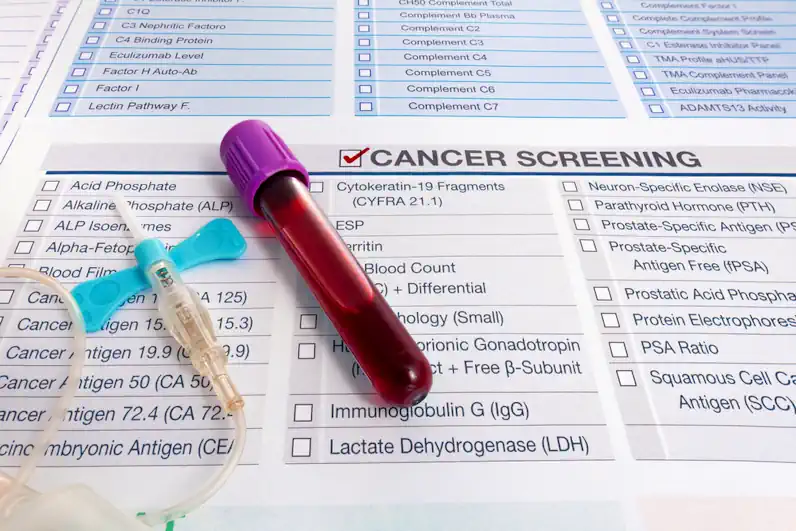Listen to Article Summary
Two recent studies conducted by Oxford Population Health at the University of Oxford in the United Kingdom have shed light on the associations between thousands of blood plasma proteins and various types of cancer. These findings have the potential to revolutionize early detection and treatment methods for cancer.
First Study: Identifying Plasma Protein Markers of Cancer Risk
The first study, published in Nature Communications on May 15, discovered 371 plasma protein markers that are associated with cancer risk. Interestingly, 107 of these markers were linked to cancers that were not diagnosed until 7 years later, suggesting the possibility of early detection and intervention.
Second Study: Exploring Associations Between Plasma Proteins and Common Cancers
The second study, published in Nature Communications on April 29, focused on the associations between 40 plasma proteins and commonly occurring cancers. The researchers hope that these associations can aid in the early detection and prevention of cancer.
Proteomics: The Key to Understanding the Relationship
Both studies utilized a field called proteomics, which involves the study of proteins and their functions within the body. By analyzing proteins found in blood plasma, researchers can gain insights into the development and progression of cancer. Proteomics combines various disciplines such as physical and biochemistry, computer science, genetics, and bioinformatics.
Uncovering Potential Links and Associations
Using data from the U.K. Biobank, the first study investigated statistical links between 1,463 plasma proteins and 19 different types of cancer in over 500,000 adults aged 39 to 73. The second study examined associations between 2,047 proteins and nine types of cancer in 300,000 individuals from the U.K. Biobank.
The researchers also explored why certain proteins were not associated with cancer, further deepening our understanding of the relationship between plasma proteins and cancer.

Potential Links and Observations
The first study identified potential links between plasma proteins and an increased risk of various cancers, including liver cancer, digestive and gastrointestinal tract cancers, non-Hodgkin lymphoma, colorectal cancer, lung cancer, kidney cancer, brain cancer, stomach cancer, esophageal cancer, endometrial cancer, and blood cancers.
The second study observed associations between plasma proteins and triple-negative breast cancer, bladder cancer, lung cancer, and pancreatic cancer.
Joshua Atkins, one of the co-authors of the studies and a senior genomic epidemiologist at the University of Oxford, expressed his interest in the other intriguing links discovered through the research.
Atkins noted that while some proteins may not directly cause cancer, they can serve as indicators of cancer growth. Identifying these proteins at an early stage can significantly improve treatment outcomes.
Understanding Protein Levels and Cancer Risk
Atkins and his team are currently working on determining the specific protein levels that should be a cause for concern. This process may take time, as seen with other biomarkers such as lipoprotein cholesterol.
David S. B. Hoon, a professor and director of the Genomic Sequencing Center at St. John’s Cancer Institute in California, highlighted the importance of considering proteins in adults of all ages. The studies primarily focused on individuals in their sixth and seventh decades, which may skew the results toward proteins associated with age-related cancer risks.
Proteins play vital roles in various bodily processes, and disrupting their levels or functions can have adverse effects. For example, Atkins mentioned that lowering the levels of the protein FGFR3, which is linked to an increased risk of bladder cancer, could lead to an increased risk of osteoarthritis.
Despite the early stage of this research, the findings have the potential to guide the development of targeted therapies and medications. By using genetic methods to predict the potential hazards and side effects of targeting specific proteins, researchers can prioritize their efforts and move forward in the fight against cancer.
Going Forward
The recent studies conducted by Oxford Population Health at the University of Oxford have provided valuable insights into the associations between blood plasma proteins and cancer risk. While further research is needed to fully understand the relationship and identify specific protein levels of concern, these findings offer hope for early detection, treatment, and prevention of cancer. The field of proteomics continues to unlock new possibilities in the fight against this devastating disease.


